This past week was an eventful one for Russia at war with the West. On May 7, Vladimir Putin was inaugurated for the fifth time as president of Russia in an elaborate ceremony that ended with Patriarch Kirill of the Russian Orthodox Church intoning “God willing, the end of the century will mean the end of your stay in power.” (In the year 2100, Putin would be 148.) On May 9, Russia celebrated Victory Day, where nuclear weapons were paraded, with Putin reminding the admiring crowd assembled in Red Square that, once again, Russia would defeat “Nazis,” this time in Ukraine, and prevail over the hostile West that seeks to dismember it.
After the festivities came the long-awaited cabinet reshuffle. Ever since Wagner Group leader Yevgeny Prigozhin’s failed mutiny last June, speculation about how long Defense Minister Sergei Shoigu would stay in power has grown. Shoigu has been the minister of defense since 2012, and he presided over the initial full-scale invasion of Ukraine in February 2022, which failed to achieve its objective of taking Kyiv in three days and deposing President Volodymyr Zelenskyy. Indeed, the Russian military’s poor performance for the first 18 months of the war fueled debate about how long Shoigu would stay in power. Prigozhin’s increasing attacks on both Shoigu and Chief of the General Staff Valery Gerasimov for incompetence and corruption cemented his popularity among rank-and-file soldiers and military bloggers. He led a failed coup aimed at ousting them. But it was he, and not Shoigu, who was eliminated.
Nevertheless, the recent arrest of Deputy Defense Minister Timur Ivanov, a close confidant of Shoigu, also known to be notoriously corrupt, signaled that Shoigu’s position as defense minister could be in jeopardy. Shoigu’s dismissal is the most consequential of the recent cabinet reshuffles. He will become the secretary of the Russian Security Council, replacing Nikolai Patrushev, who has served in this position since 2008. Patrushev has been named an aide to Putin responsible for overseeing shipbuilding. His son, Dmitry Patrushev, has been promoted to deputy prime minister for agriculture. It is important to remember that, in the Putin system, official titles are much less important than one’s relationship with Putin. Nikolai will no doubt retain his close ties to Putin. And Shoigu is likely to be a less influential head of the Security Council than Patrushev was.
The new minister of defense, Andrei Belousov, is, at first glance, a surprising choice. An economist by training, he has held several previous positions as an economic official, including briefly as acting prime minister. He is known to be in favor of greater state control of the economy. His appointment confirms that Russia is now on a war economy footing, corruption within the military remains rife, and there have been rising conflicts between the Ministry of Defense and the military-industrial complex. Belousov will, in effect, act as the quartermaster. He will be responsible for strengthening the war economy as well as dealing with corruption, reducing bottlenecks in the supply chains, and encouraging innovation in the military sector. He will also have to ensure that the military receives the supplies it needs and that money allocated for weapons and training will not continue to disappear into the pockets of corrupt officials. He will oversee the integration of the war economy with the rest of the economy to ensure the flow of weaponry and materiel. He will not make the key military decisions. These will continue to be made by Putin, Gerasimov, and others in the military. He accompanied Putin to Beijing this week to discuss military issues with his Chinese counterpart.
Putin’s main concern as the war with Ukraine continues is for military spending to be under control. And he realized that he needed a competent economic decisionmaker to accomplish that. Belousov’s appointment is in some ways reminiscent of Anatoly Serdyukov’s appointment as defense minister from 2007 to 2012. A former furniture manufacturer and tax official, Serdyukov’s main task was dealing with corruption and inefficiency in the ministry and reforming the armed forces after their less-than-stellar performance in the Georgia war of 2008.
Apart from these personnel changes, much remains the same. Mikhail Mishustin has been reappointed as prime minister. A technocrat who has maintained a low profile during the war with Ukraine, Mishustin’s primary responsibility will remain dealing with the economy and ensuring its continued stability and growth. The power ministries are also staying in the same hands. Sergey Lavrov, who has been foreign minister since 2004, remains in office, despite periodic rumors of his imminent retirement. The heads of the intelligence services—Sergei Naryshkin of the Foreign Intelligence Service and Alexander Bortnikov of the Federal Security Service—retain their positions (despite their intelligence failures prior to the invasion of Ukraine), as does the head of Putin’s Praetorian guard, Viktor Zolotov.
These personnel moves represent a reshuffling of a deck of cards that Putin has meticulously played over his 25 years in the Kremlin. Their message is that Putin intends to win the war with Ukraine with the help of a more efficient military and a sound economy.
The Brookings Institution is committed to quality, independence, and impact.
We are supported by a diverse array of funders. In line with our values and policies, each Brookings publication represents the sole views of its author(s).

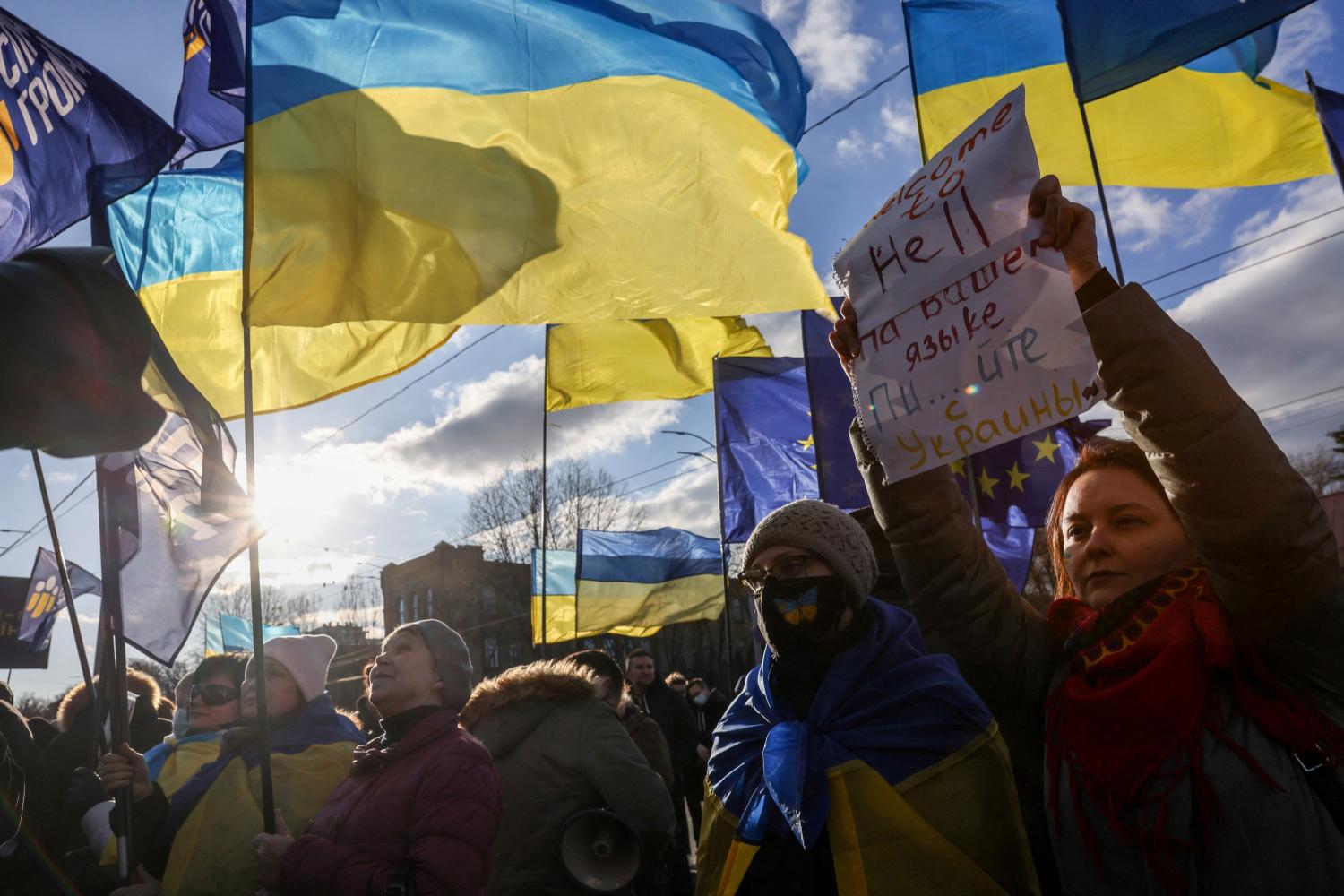
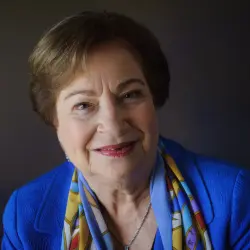
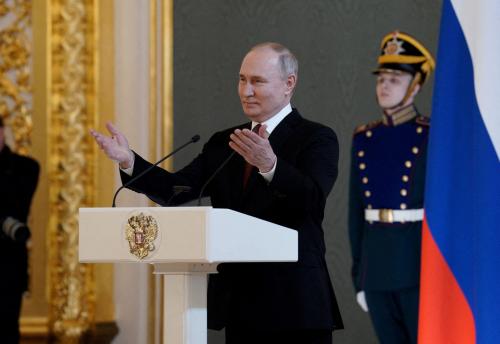
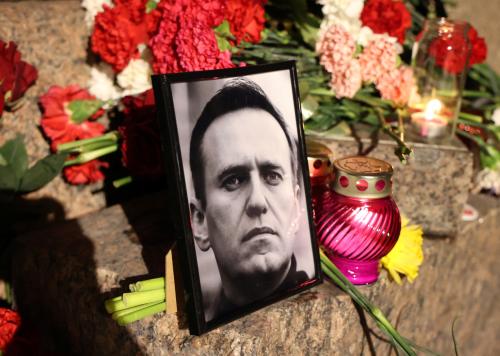
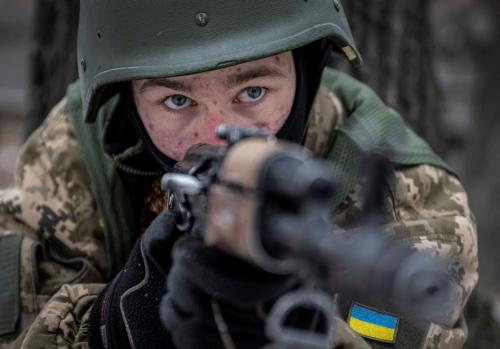
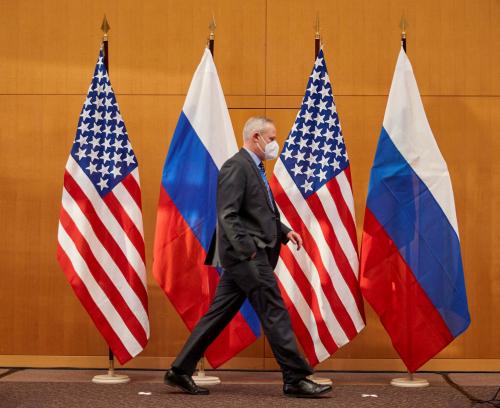
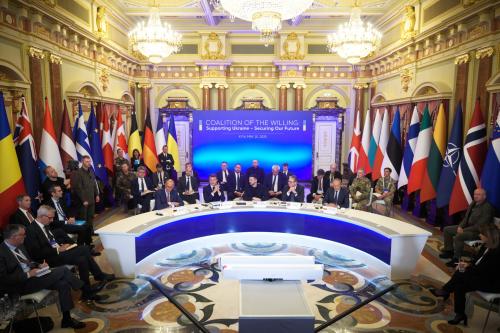
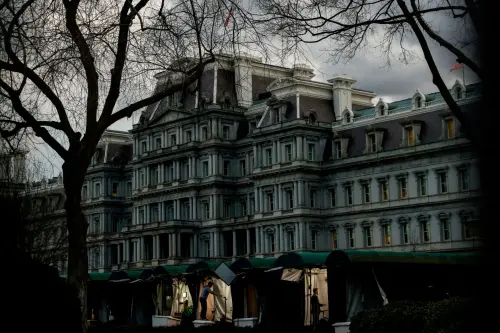
Commentary
Putin’s cabinet reshuffle: The quartermaster takes over
May 17, 2024